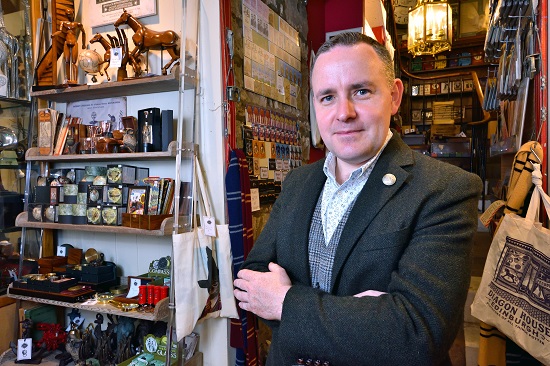Scottish business optimism plunged before the latest lockdown, FSB reports

Andrew McRae
Scottish business confidence crashed in the final days of 2020, according to new research from the Federation of Small Businesses (FSB).
The small business campaign group says that their findings underline the need for governments in Edinburgh and London to provide sufficient second-wave coronavirus support to independent and local firms, as well as people who work for themselves.
FSB’s UK-wide small business confidence index fell to -49.3 points at the end of 2020, the second-lowest ever recorded by the research series.
However, the average Scottish firm is even less confident about prospects, according to FSB, with the equivalent Scottish figure plunging to -69.0 points from -26.3 points in the autumn. The metric measures whether businesses believe trading conditions are going to improve or deteriorate.
Both indices were only lower in the first quarter of 2020 with the UK index reading -143.4 points and the Scottish index -154.8 points. The latest research is based on a survey conducted between 14 and 21 December.
Andrew McRae, Federation of Small Businesses (FSB) Scotland policy chair, said: “The average Scottish business owner has grave fears about the future. These worries are founded upon firms facing weeks or months of restrictions after likely draining their cash reserves and taking on significant debt.
“That’s why governments in Edinburgh and London need to back our small businesses and those that work for themselves. We need to see the Chancellor expand help to company directors and boost the overall package of support to UK small businesses. This move must take place before the March budget.
“The Scottish Government too must turn warm words into hard cash for smaller firms. That means quickly providing easy-to-access cash grants for all Scottish smaller businesses hit by this crisis, no matter their sector or status. It remains far too difficult for many firms to access the financial help that might be the difference between their survival and failure.”
On the difference between the UK and Scottish confidence figures, Andrew McRae said: “While UK confidence is low, Scottish confidence is lower. This is likely due to our proportionally larger tourism and hospitality sector, as well as the restrictions Scottish firms faced when this survey was conducted.”
About one in five (21.5%) Scottish small businesses fear that they may be required to reduce the number of people they employ over the next three months, the survey shows. By comparison, only one in twenty (4.8%) Scottish small businesses intend to expand their workforce.
Close to 5% of the around 1400 UK firms surveyed as part of FSB’s Small Business Confidence Index warned that they plan to close their doors in the next twelve months. On a UK-wide basis, the organisation is warning this could lead to a quarter of a million business failures.
Mr McRae added: “A million people in Scotland are either employed by Scotland’s local and independent firms or work for themselves. But our neighbourhood entrepreneurs are in crisis. Despite making huge sacrifices during this pandemic, local businesses aren’t getting sufficient support from policymakers. This needs to change and fast otherwise we’ll see wave after wave of job losses and business failures.”







